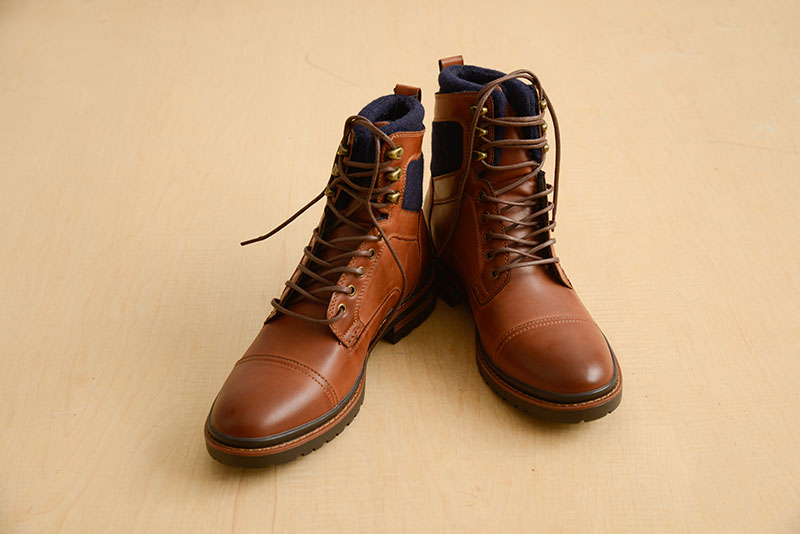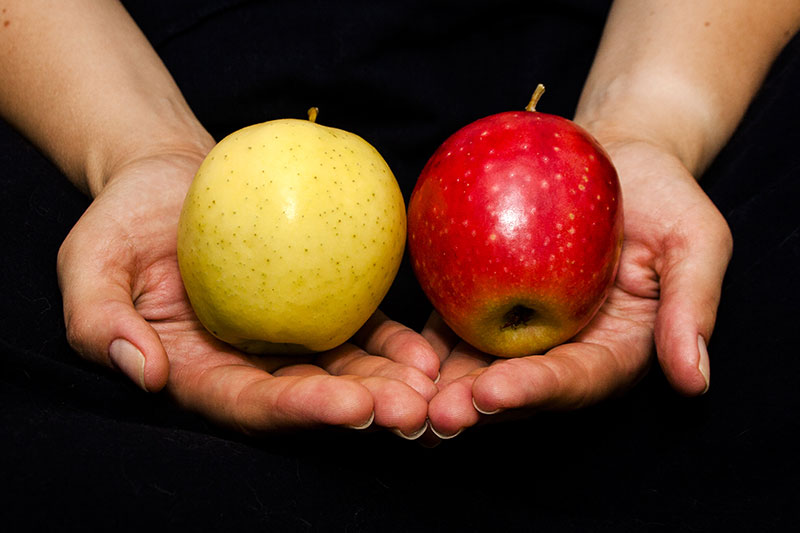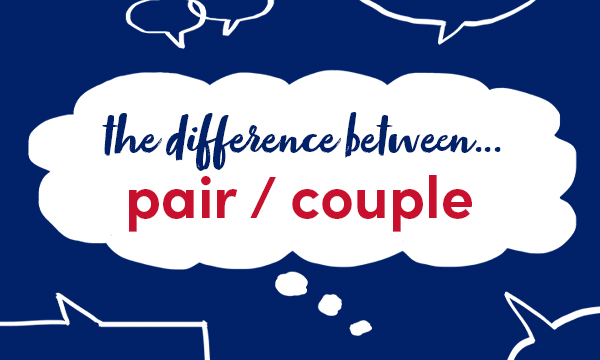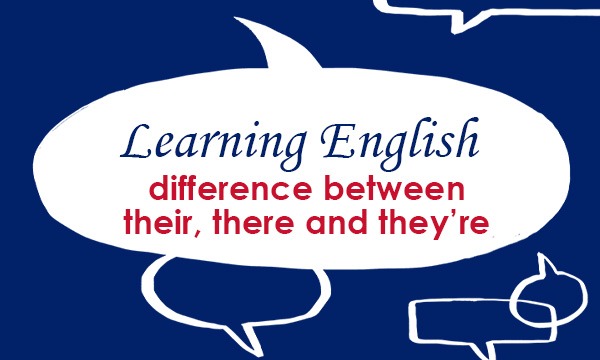This week we are looking at two words which are sometimes confused by learners of English: pair and couple.
pair

You use a pair of to talk about two things of the same size and shape that are used together, such as shoes.
He bought a pair of hiking boots.
Someone has dropped a pair of gloves.
When you use a pair of like this, you can use either a singular or a plural form of a verb.
He wore a pair of shoes that were given to him by his mother.
A pair of shoes was stolen from the changing rooms last night.

You also use a pair of to refer to something that has two main parts of the same size and shape, such as trousers, glasses, or scissors.
Do you have a pair of scissors I could use?
She has a new pair of glasses.
When you use a pair of like this, you use a singular form of a verb.
Who does this pair of jeans belong to?
A good pair of binoculars is essential for watching birds.
couple

In conversation and informal writing, you can refer to two people or things as a couple of people or things.
I asked a couple of friends to help me.
We played a couple of games of tennis.
You use a plural form of a verb with a couple of.
A couple of guys were standing by the car.
There were a couple of apples left in the bowl.
Be careful not to use a couple of in formal writing.

You also use couple to talk about two people who have a romantic or sexual relationship, for example, people who are married.
In Venice we met a South African couple.
Married couples will get tax benefits.
You usually use a plural form of a verb with couple.
A couple were sitting together on the bench.
Find out more in our English Usage article.
This blogpost is based on Collins COBUILD English Usage, written for learners of English. For more examples of English usage points, please visit: https://grammar.collinsdictionary.com/english-usage.
All opinions expressed on this blog are those of the individual writers, and do not necessarily reflect the opinions or policies of Collins, or its parent company, HarperCollins.



